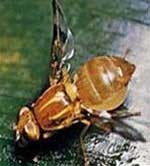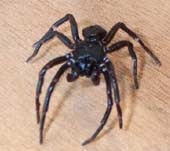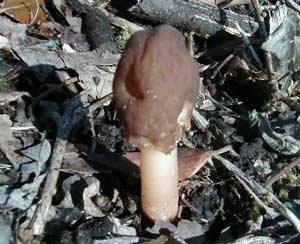It’s not uncommon for flies to land on food. So, what do you usually do when a delicious piece of cake you were about to enjoy gets interrupted by these annoying creatures… eating it first?
The Horrifying Things That Happen When Flies Land on Food
Perhaps many people would choose to… ignore it, after all, it’s a normal occurrence. But the truth is that a fly can bring a lot of problems if it lands on your plate long enough.
1. They will… vomit on your food

There’s a little-known fact about… how flies eat: they have a mouth shaped like a proboscis to suck up food. This structure forces them to turn all types of food into a liquid, making the sucking process easier.
To accomplish this, they will spit a type of saliva containing special enzymes onto the food to break down organic matter. However, this liquid contains nearly everything they have eaten before (like rotten meat, spoiled food, and even… feces). In other words, it’s no different from vomit, and might even be worse.
Additionally, the act of regurgitating partially digested food serves another purpose: it helps to dry it out a bit. In fact, when there’s too much food in a fly’s stomach, it will want to expel it temporarily, waiting for the moisture to evaporate before sucking it back in.
Through this action, they can eat even more and feel less heavy while flying.
2. They can lay eggs on it

Human food—whether rotten or not—will serve as a perfect environment for flies to lay their eggs. After a while, those eggs will hatch into maggots, contaminating the food with toxins and bacteria. Generally, no one wants to eat a bunch of maggots, right?
3. Flies are a breeding ground for bacteria, even more than cockroaches

Flies themselves carry at least 200 types of harmful bacteria, which is ten times more than cockroaches. This bacteria comes from the things flies typically land on, including garbage, rotten food, and animal feces.
On the legs of flies are thousands of tiny hairs. This leads to the situation where just a brief contact can transfer nearly all of these bacteria onto your food. According to research from Nanyang Technological University: “Every step a fly takes leaves behind a colony of bacteria.”
“A fly only needs a few seconds of contact with food for the bacteria from the most disgusting things in the world to transfer to what you are about to eat,” says Ron Harrison, an entomologist at Orkin Pest Control.
4. They carry at least 65 types of diseases

A single fly can carry at least 65 pathogens. “Among the bacteria transferred are dangerous pathogens like cholera, dysentery, and typhoid…” says Ron Harrison. Not only humans are at risk; this bacteria can also endanger other animals, including pigs and chickens.
So, you might want to reconsider eating something that has been touched by flies.
Do Flies Do Anything Good Besides Stealing Food and Spreading Diseases?
Spitting on your food and spreading disease sounds disgusting, but flies don’t always act like a bunch of thugs.
The next time you go on a picnic, take a close look around you and notice how many flies are visiting flowers to collect nectar. Flies, like bees, are important pollinators. In fact, many plant species rely on flies for reproduction.
Flies are also a food source for frogs, lizards, spiders, and birds, making them a valuable part of the ecosystem.
Some species of flies even have medicinal uses. For example, doctors use fly larvae—immature flies—to remove necrotic tissue from wounds. The larvae secrete substances that have antiviral and antibacterial properties. These substances even help scientists develop new infection treatment methods.
More importantly, the fruit flies that often hover around ripe bananas in your kitchen are now a significant companion for scientists. They are being used in countless biomedical experiments worldwide.
This is because fruit flies share up to 75% of their disease-related genes with humans. Studying this species of fly can help us uncover the causes and treatments for many diseases, especially genetic disorders.
Therefore, while it may be a bit annoying when flies keep staring at your bread, given the contributions of these tiny insects, you might consider pinching off a small piece of bread and sharing it with them.




















































